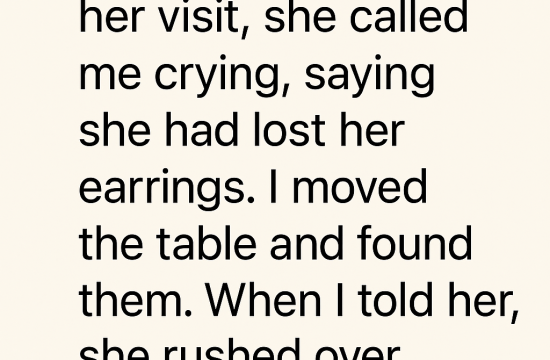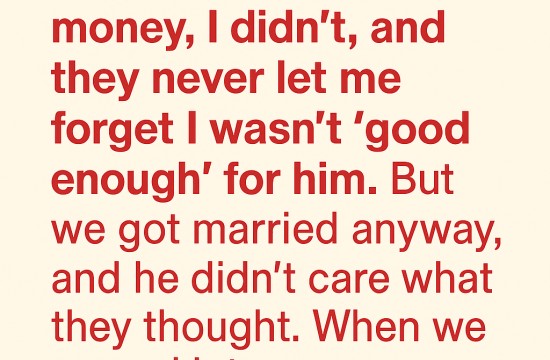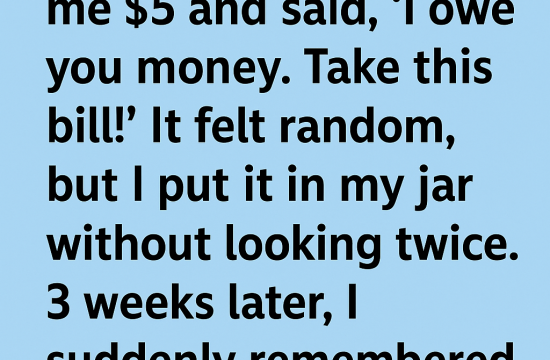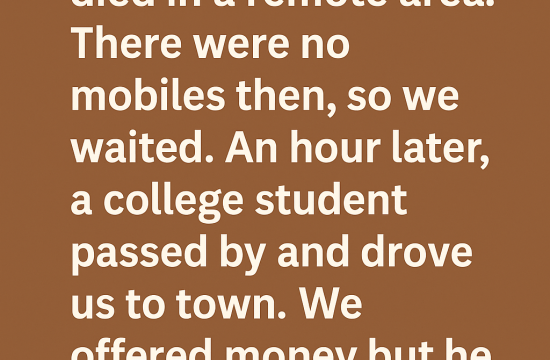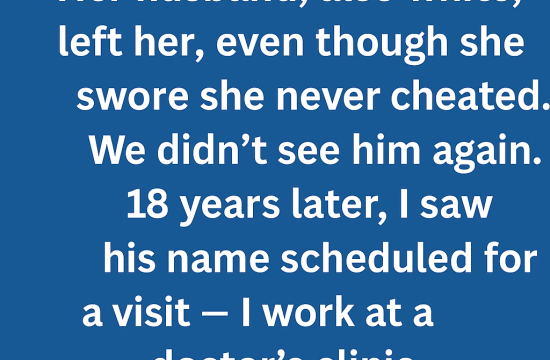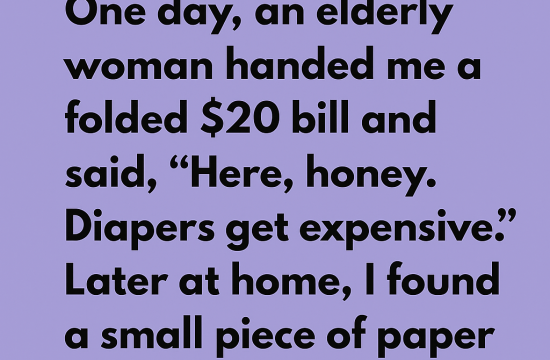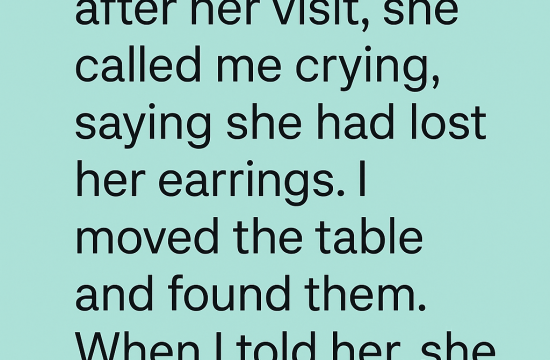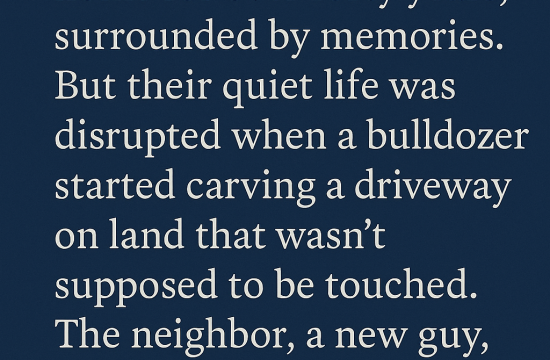After 14 years, Peter told me I was “too tired, too boring, too much,” and left me — and our four kids — for his carefree colleague. No warning, just a text. A year later, as I was finally healing, he showed up at my door with a cheap bouquet and a request that changed everything.
For 14 years, I gave everything to our family.
I juggled four kids, packed countless lunches, managed dentist appointments that never seemed to end, and scrubbed mashed carrots from car seats more times than I could count.
I was so busy taking care of everyone else that I barely noticed when the man I shared a bed with became a stranger.
Then came the text that broke me.
I was elbow-deep in the second load of laundry when my phone chimed. I wiped my hands, glanced at the screen — and the world stopped.
“I can’t do this anymore. I’m sorry,” Peter had written. “You’re too tired. Too boring. Too much. I need more from life.”
He didn’t just walk out of a marriage.
He walked out on Emma’s dance recital, on bedtime stories, on four young lives that still needed their father.
Then came the Instagram posts.
Peter and Elise — his red-lipped colleague who had no children, no commitments, no bedtime routines. They were smiling on a rooftop bar, clinking glasses. The caption read: “Starting fresh.”
322 likes. I threw my phone across the room.
“Mom? Is everything okay?” Jake, my oldest, stood in the doorway.
I swallowed hard. “Just dropped my phone. You ready for school?”
He hesitated. “Where’s Dad? He’s not downstairs…”
I hadn’t told them yet. How do you explain that their father left by text message? But I had no choice. Over breakfast, I broke their hearts — and promised them I’d never let ours fall apart again.
So, I went into survival mode.
There was no time to cry. Four lunchboxes to pack. Four lives to keep steady. I held myself together while silently unraveling. The silence from Peter was loud, but my to-do list was louder.
My days blurred into a loop of breakfast, school runs, work, homework, dinner, baths, bedtime — repeat. Somewhere in there, I was supposed to grieve. Instead, I folded laundry.
One night, as I tucked in seven-year-old Lucy, she whispered, “Is Dad gone because of me? I’m loud at breakfast, and I’m bad at math…”
My heart cracked. “No, sweetheart. Never because of you. Grown-ups make choices that have nothing to do with how amazing their kids are.”
“But if I’m really good, will he come back?”
I kissed her forehead and cried later in the shower, where no one could hear.
After heartbreak came resolve.
I sold the piano Peter never played and used the money to turn the guest room into a home office. I went back to teaching full-time, stopped waiting for texts, and joined a book club where, slowly, I started to laugh again.
“Mom, you seem happier,” Emma said one Saturday morning as we flipped pancakes.
“Do I?”
“Yeah. You’re singing again.”
I hadn’t even realized I’d stopped.
Healing wasn’t linear, but it was mine. The kids stopped asking about their dad. I stopped checking for his name on my phone. Somewhere along the way, surviving turned into thriving.
By the time a year passed, I’d built a new life — one that didn’t need him.
Then the doorbell rang.
Peter stood there with a gas-station bouquet and that same fake smile he used when he forgot our anniversary.
“Can we talk?”
He looked older, heavier, tired. “I’ve been doing a lot of thinking,” he began, lowering himself into his old chair like he still belonged there. “I made a huge mistake. Elise said I was emotionally unavailable — can you believe that?” He gave a hollow laugh.
“Shocking,” I said flatly.
“I miss you, Sarah. I miss the kids. You held everything together. I know now you were the only woman who ever understood me.”
He reached for my hand. I didn’t move.
“I want to come home,” he said finally.
I smiled faintly. “Wait here.”
From the kitchen drawer, I pulled a folder — thick, neatly labeled. I placed it in front of him.
“What’s this?”
“Open it.”
His confidence drained as he flipped through the pages — bank records, receipts, retroactive child support calculations with interest. The sum owed was printed clearly in bold.
“What is this?” he stammered.
“You said you wanted to come back,” I said sweetly. “I assumed you meant as a responsible father, not as a man looking for comfort.”
His face fell. “I thought we could try again.”
“You thought wrong.”
“You’ve changed,” he said bitterly.
“No,” I replied. “I just stopped setting myself on fire to keep you warm.”
“This isn’t fair,” he protested. “I’m trying here!”
“Trying? After a year of silence? Your trying is like putting a band-aid on a bullet wound.”
“I made mistakes—”
“No. You made choices. Every single day for a year, you chose yourself.”
He looked at me for a long time. “So that’s it? No second chance?”
“The kids deserve better than a father who treats them like a phase. They can see you — if they want. But me?” I shook my head. “That chapter’s closed.”
I walked him to the door. He turned, maybe to say something grand. I was already closing it.
The next morning, I tossed his wilted bouquet into the compost bin — right beside the coffee grounds and eggshells.
Things that once served a purpose, but never would again.




